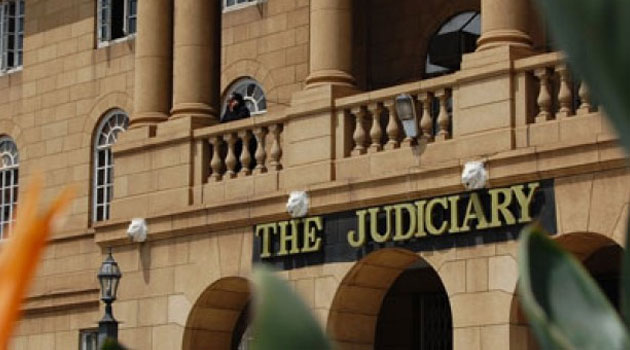Captain (Rtd.) Kung’u Muigai has accused top judges of taking millions in bribes to rule against him in a 33-year case with KCB, reviving fears that justice in Kenya is still for sale.
Kenya’s Judiciary is once again on trial in the court of public opinion. Explosive claims of bribery, backroom deals, and “justice for sale” have resurfaced after Captain (Rtd.) Kung’u Muigai accused senior judges of taking millions in bribes to rule against him in a 33-year loan dispute with Kenya Commercial Bank (KCB).
Kung’u, a cousin to former President Uhuru Kenyatta and patron of the National Council of Elders, narrated a dramatic tale of lost court files, phantom consent judgments, and judges allegedly pocketing cash in hotel basements and supermarket parking lots.
He claimed his company, Benjoh Amalgamated Ltd, and his family’s Muiri Coffee Estate were unfairly auctioned off after a loan dispute in the early 1990s.
“Our Judiciary is corrupt to the core. Judges take money openly and make rulings the way they want,” Kung’u said, vowing to put his life on the line to expose what he described as decades of injustice.
In his testimony, Kung’u named former and sitting judges, some now in the Supreme Court alleging payouts ranging from one million shillings to multimillion-dollar bribes.
He claimed a 450-acre estate worth Sh3.5 billion was sold for just Sh70 million in what he described as a fraudulent takeover facilitated by corrupt court rulings.
Former LSK President Nelson Havi picked up on Kung’u’s remarks to step up his criticism of Supreme Court Judge Isaac Lenaola.
“If you read the complaint by Victoria Keen you must arrive at the conclusion that Isaac Lenaola is a dangerous criminal sitting as a Supreme Court judge. How can this continue unabated?” Havi posted.
– Ahmednasir’s long-running critique of Supreme Court corruption –
The fresh storm adds to long-running criticism by outspoken lawyer Ahmednasir Abdullahi, who has repeatedly branded the Supreme Court “the most corrupt institution in Kenya.”
Ahmednasir, banned in January 2024 from ever appearing before the apex court over his “relentless and baseless” attacks, insists he is merely speaking truth to power.
President William Ruto himself has publicly acknowledged Ahmednasir’s warnings about “sabotage by corrupt judicial officers,” while vowing to “root out the corrupt.”
The Judiciary, however, has dismissed Kung’u’s claims as malicious and unfounded.
In a strongly worded statement, Judiciary spokesperson Paul Ndemo said 17 appellate judges and several High Court judges had handled the matter, consistently upholding a 1992 consent judgment in which Benjoh admitted owing KCB.
“It is mischievous, to say the least, for Captain Muigai to allege that all judges who ruled against him were bribed, while those who sided with him were not,” Ndemo said.
The Judiciary maintains that no credible evidence has ever been presented before any competent forum to prove bribery.
The Judicial Service Commission (JSC) reviewed Kung’u’s petitions and similarly found no impropriety.
– CJ Koome’s anti-corruption reforms in the judiciary –
Chief Justice Martha Koome has admitted that corruption remains a stubborn problem in some court stations.
In March 2025, she unveiled a new anti-corruption strategy, warning that “justice cannot be for sale.”
Koome has since rolled out Court Integrity Committees in all stations and stressed a zero-tolerance policy to graft within the Judiciary.
According to JSC data, 141 petitions on judicial conduct were lodged in 2023/24, with seven directly touching on judges.
Still, critics argue reforms have not gone far enough.
For Ahmednasir, nothing short of a radical clean-up of the Supreme Court will restore public trust.
For Kung’u, justice can never be done until the “ghost consent judgment” that has haunted him for three decades is struck out.
His claims, though unproven have reopened deep doubts about Kenya’s justice system.
For many Kenyans, the fear remains that without real reforms, justice may still be swayed by money and power. By Davis Ayega, Capital News






